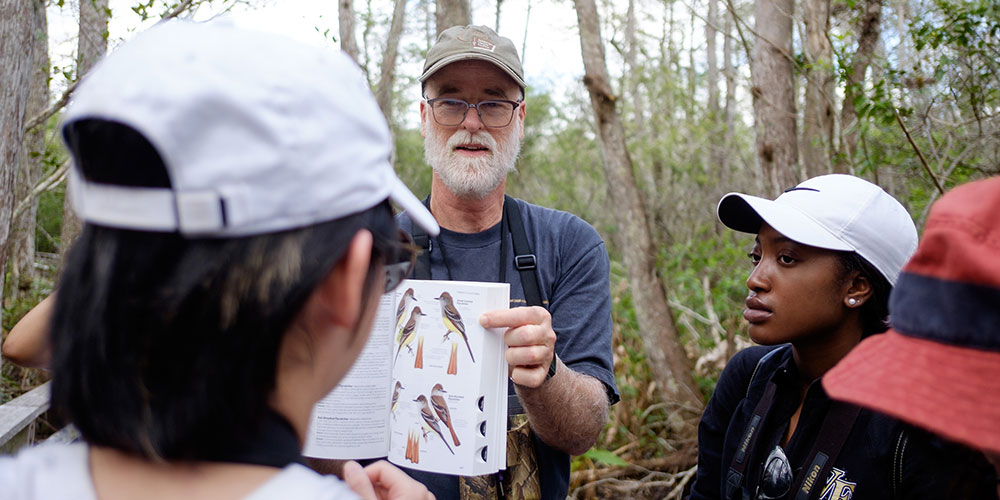Biology

Bachelor of Science
Bachelor of Arts
Minor
Biology encompasses the study of all living organisms, including microbes, plants, and animals. The study of biology includes various aspects of life; including basic organization (molecular, cellular, tissues, organs), how organisms function and their roles in the natural environment, how hereditary information is transferred, and development of biotechnology.
Did You Know?
Wake Forest was the first college in the South to teach biology in a laboratory. In recent years, the Biology department, its faculty and students have benefited from the renovation of the main Reynolda Campus facility and the opening of a new one, the biomedical center at Wake Downtown, a 13-minute shuttle ride away.
- Students declaring their primary major in Biology lead the way in faculty-mentored presentations at Undergraduate Research Day, the Celebration of Collaboration that coincides with Family Weekend. In the past 11 years, Biology majors have accounted for 15% of all presentations.
- In the past 10 graduating classes (2015-24), Biology has been the seventh most popular major overall and the fifth most popular in Wake Forest College, accounting for 8.13% of all graduates and 6.89% of all declared majors.
- Dr. Miles Silman is one of the world’s leading experts in efforts to preserve Amazon forests.
Courses
Sample courses for students studying Biology include:
- Biological Principles
- Biology and the Human Condition
- Ecology and Conservation Biology of Coral Reefs
- Population Genetics
- Biomechanics
View official major requirements »
Practical Experience & Skills
Biology graduates are broadly trained and well prepared for admission into strong graduate programs in the biological sciences and professional schools (medical, dental, and veterinary). They may also directly assume positions in government, education, industry, or certain technical fields.
Students in this program will develop the following skills:
- Organizing ideas/information
- Applying scientific concepts to problems
- Making projections from data
- Ability to make critical observations and appropriate decisions
- Ability to operate scientific equipment
- Ability to organize and maintain accurate records
- Ability to conduct and clearly explain scientific research
Clubs & Organizations
Biology students participate in the following clubs and organizations:
- Beta Beta Beta
- Bioethics Club
- Association of Pre-Physician Assistants
- Health Occupation Students of America
- Women in STEM
Career Outcomes
Careers that often interest Biology majors include:
- Biochemist
- Bioinformaticist
- Blood Bank Technologist
- Clinical Pathologist
- Crime Lab Analyst
- Cytotechnologist
- Dentist
- Dietician
- Educator
- Environmental Specialist
- Field Study Coordinator
- Food and Drug Inspector
- Genetic Counselor
- Health Program Assistant
- Hemotherapist
- Histologist
- Lab Technician
- Legal Assistant
- Medical Equipment Sales
- Medical Investigator
- Medical Librarian
- Medical Writer
- Microbiologist
- Optometrist
- Parasitologist
- Pharmaceutical Sales Representative
- Physical Therapist
- Physician
- Physician’s Assistant
- Public Health Specialist
- Quality Control Specialist
- Toxicologist
Although many Biology graduates enjoy successful careers in medical fields, they are also attorneys; ministers; financial advisors; and involved in dozens of other specialties.
Ready to take the next step?
Related Programs
Those who are interested in Biology also consider the following programs:
Viewbook
At Wake Forest, we have lots of good stories to share, so we hope you’ll get to know us. Browse our Viewbook to learn more.


